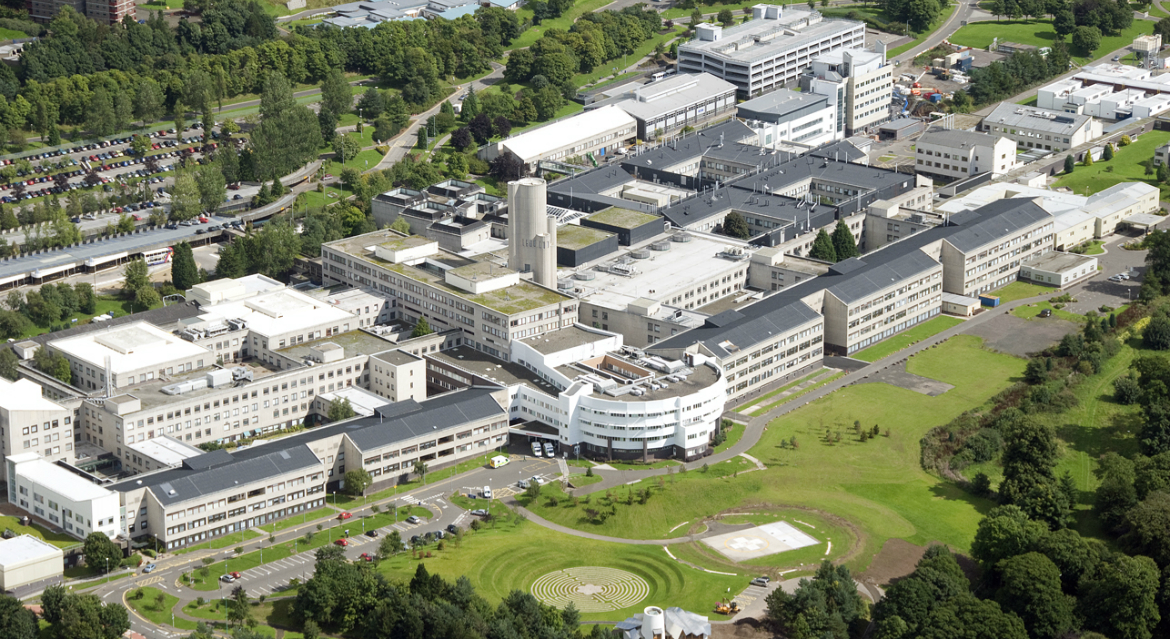Research could prompt changes in cancer treatment
Published On Wed 11 Jul 2018 by Jonathan Watson

Researchers at the University of Dundee have developed new drug modelling systems that could herald changes in the way patients are treated for the UK’s deadliest form of cancer.
A team at the University’s School of Medicine say they have established a more accurate process of mimicking how anti-cancer medication metabolises in the human body, a move that could significantly benefit patients.
It could lead to smaller, more targeted dosages of anti-cancer drugs being prescribed, reducing patient side-effects and allowing for more complex drug regimens to be tested to overcome the growing problem of patients becoming resistant to medication.
Findings published in the journal Clinical Cancer Research focus on one particular drug, Osimertinib, which has been developed for use in treating patients with lung cancer, a disease which claimed more than 35,000 lives in the UK in 2016.
It follows the award of a research grant of £1.5 million from the Medical Research Council to allow Dundee researchers to exploit new drug modelling systems, which could also facilitate the development of new combination treatments for cancer patients.
While Osimertinib’s pharmokinetic properties have been poorly predicted in the past, the team at Dundee believe these newly-developed models could significantly improve the medication’s efficacy.
“Cancer treatment has been revolutionised by understanding the genetic changes that drive the generation of tumours,” said Roland Wolf, Professor of Pharmacology, who formed the research team alongside Dundee’s Dr Colin Henderson, and University of St Andrews Chair of Applied Mathematics, Professor Mark Chaplain.
“Drugs are now developed to target mutations in tumours, which should increase its specificity because they only interact with the mutant proteins. However, one of the problems with targeted drugs is that people very rapidly become resistant to them.”
Dr Henderson said: “Targeted drugs have revolutionised melanoma treatment, as this disease was previously highly refractory to treatment. However, although treatment with these drugs is initially very effective, the tumour rapidly becomes refractory to treatment and alternative, less effective treatment strategies need to be applied.
“What we have done in the laboratory is develop models that allow us to test possible drug combinations to hopefully move away from sometimes highly toxic doses of anti-cancer drugs, and as a consequence find out how to combine these drugs optimally, maintain therapeutic response and delay the onset of resistance.”
Anti-tumour agents are currently developed using mice, but differences in pathways of drug disposition and metabolism mean that results obtained via these means may vary dramatically when applied to humans. Professor Wolf and Dr Henderson, in collaboration with Professor Chaplain, will continue developing new modelling systems allowing for a more accurate resemblance of how medication may work in the human body. This could lead to smaller, more tailored drug combinations and dosages being prescribed to patients.
Professor Russell Petty, Chair of Medical Oncology at Dundee, hailed the team’s work, adding, “We are fortunate that because of research we have an ever increasing number of new targeted medicines for cancer.
“This has brought into focus the importance of using these medicines as precisely as possible to ensure we treat each patient with the combination and dose of medicines that optimises the chances of success while minimising the risk of side effects, but undertaking the clinical research in cancer patients to achieve this is complex and difficult and so unfortunately progress is slower than we would like.
“This work and the models being developed will allow us to accelerate the research process and deliver the benefits of precision cancer medicine to patients much more rapidly.”
For media enquiries contact:
Jonathan Watson
Media Relations Officer
University of Dundee
Nethergate, Dundee, DD1 4HN
Tel: +44 (0)1382 381489
Email: j.s.watson@dundee.ac.uk